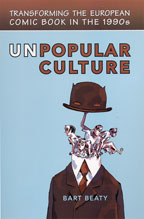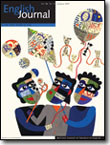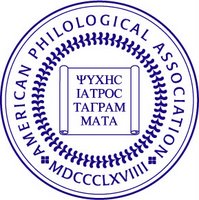As I used to serve as Chair of this conference, I'm (more than a bit) biased, but ICAF is a wonderful conference, and attendees always gain a greater appreciation of comics from around the globe.
The Twelfth Annual
International Comic Arts Forum (ICAF)
October 18-20, 2007
The Library of Congress, James Madison Building, Washington, D.C. 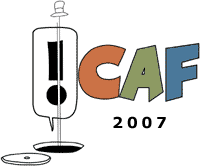
The
International Comic Arts Forum (formerly the International Comic Arts Festival) invites scholarly paper presentations for its twelfth annual meeting, to be held at the
Madison Building of the Library of Congress in Washington, D.C., from Thursday, October 18, through Saturday, October 20, 2007. We welcome original proposals from a variety of disciplines and theoretical perspectives on any aspect of comics (including comic strips, comic books, albums, manga, graphic novels, political cartoons, other panel cartoons, caricature, or comics in electronic media), with a special interest in international comics. Proposals will be refereed via blind review.
PROPOSAL GUIDELINESFor its scholarly presentations, ICAF prefers argumentative, thesis-driven papers, clearly linked to larger critical, artistic, or cultural issues; we strive to avoid presentations that are merely summative or survey-like in character. We can only accept original papers that have not been presented or accepted for publication elsewhere. Presenters should assume an audience versed in comics and the fundamentals of comics studies. Where possible, papers should be illustrated by relevant images. In all cases, presentations should be timed to finish within the
strict limit of TWENTY (20) MINUTES (roughly eight to nine typed, double-spaced pages).
Proposals should not exceed
300 WORDS. At the bottom of the proposal, the author should precisely state her/his audiovisual equipment needs.
AUDIOVISUAL EQUIPMENT: Our preferred format for the display of images is
MS PowerPoint. Regretfully we cannot accommodate non-digital media such as transparencies, slides, or VHS tapes. Presenters should bring their PowerPoint or other electronic files on a CD or a USB key, not just on the hard drive of a portable computer. We cannot guarantee the compatibility of our equipment with presenters' individual laptops.
REVIEW PROCESS: All proposals will be subject to blind review by the ICAF Executive Committee, with preference given to proposals that observe the above standards. The final number of papers accepted will depend on the needs of the conference program. Due to increasing interest in the conference, in recent years ICAF has typically accepted only one-third to one-half of the proposals it has received.
SEND ABSTRACTS (with COMPLETE contact information) by March 15, 2007, to Prof. Cécile Danehy, ICAF Academic Coordinator, via email at
<cdanehy@wheatoncollege.edu>.
Receipt of proposals is acknowledged immediately; if you do not receive acknowledgement within a few days of sending your proposal, please resubmit.
Applicants should expect to receive confirmation of acceptance or rejection by May 15, 2007.
Labels: academic, cfps, conferences, ICAF
Link
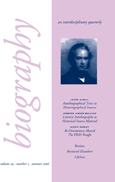 The Winter 2008 Special Issue of Biography: An Interdisciplinary Quarterly will be devoted to Autographics. Guest editors Gillian Whitlock and Anna Poletti seek to explore the diverse forms of visuality and conjunctions of image, text, and materiality in contemporary life narrative. Graphic forms include visual elements such as drawings, images, and pictures, as well as elements of design and physical features of the text--for instance, the diverse use of materials in such DIY autobiographical forms as personal zines, installations, and websites. Other examples of autographics include autobiographical comix and sequential art, graphic memoir, writing on the body and body maps, self portraiture, auto/biographical uses of found objects in collage, assemblage and installation, and contemporary uses of craft.
The Winter 2008 Special Issue of Biography: An Interdisciplinary Quarterly will be devoted to Autographics. Guest editors Gillian Whitlock and Anna Poletti seek to explore the diverse forms of visuality and conjunctions of image, text, and materiality in contemporary life narrative. Graphic forms include visual elements such as drawings, images, and pictures, as well as elements of design and physical features of the text--for instance, the diverse use of materials in such DIY autobiographical forms as personal zines, installations, and websites. Other examples of autographics include autobiographical comix and sequential art, graphic memoir, writing on the body and body maps, self portraiture, auto/biographical uses of found objects in collage, assemblage and installation, and contemporary uses of craft.